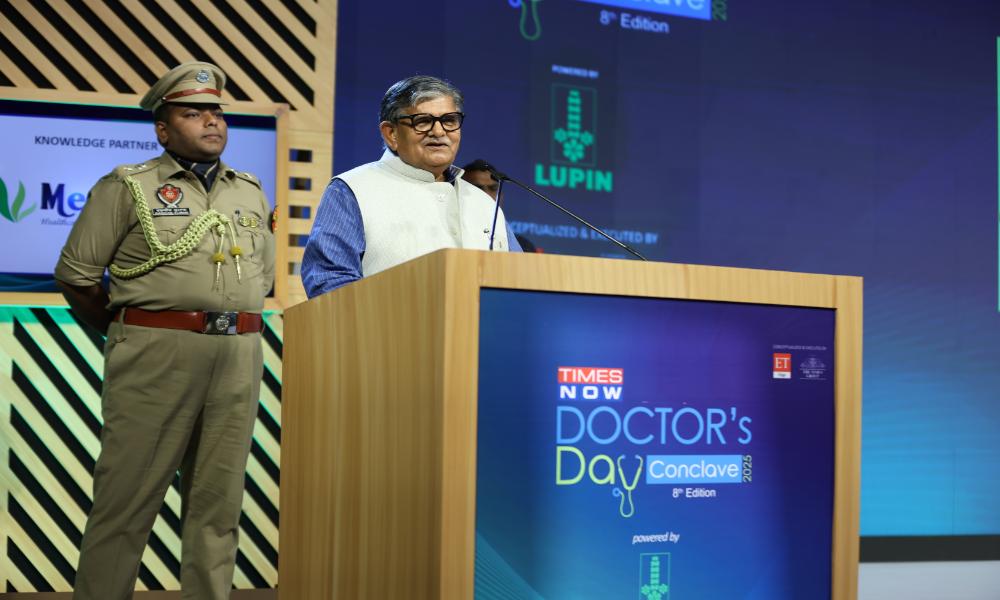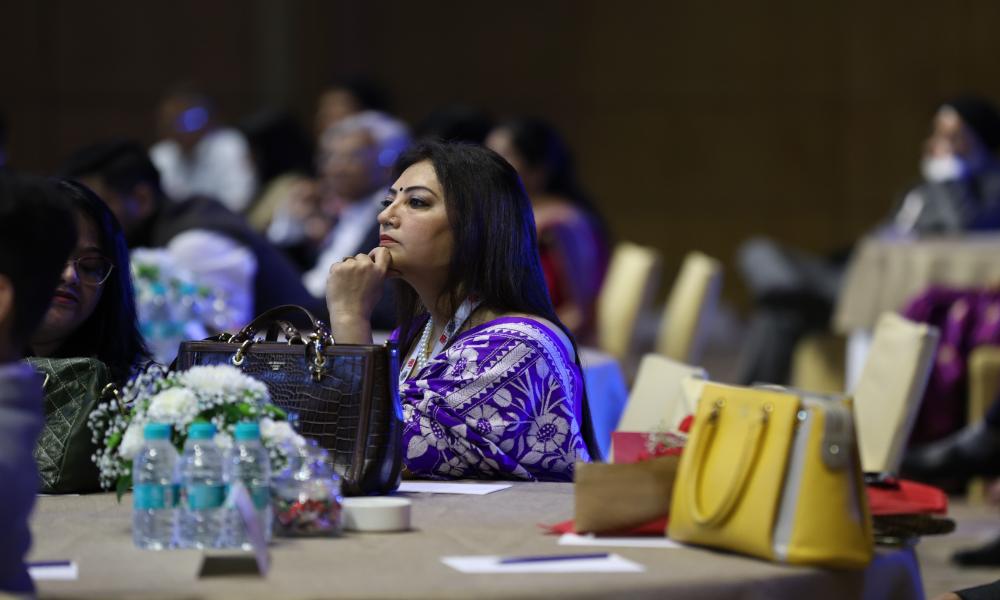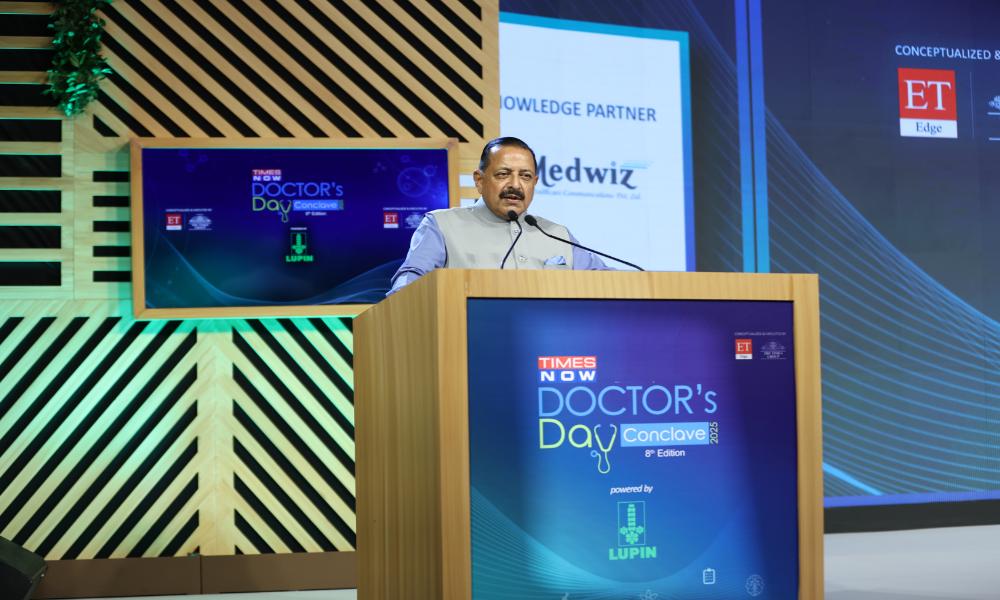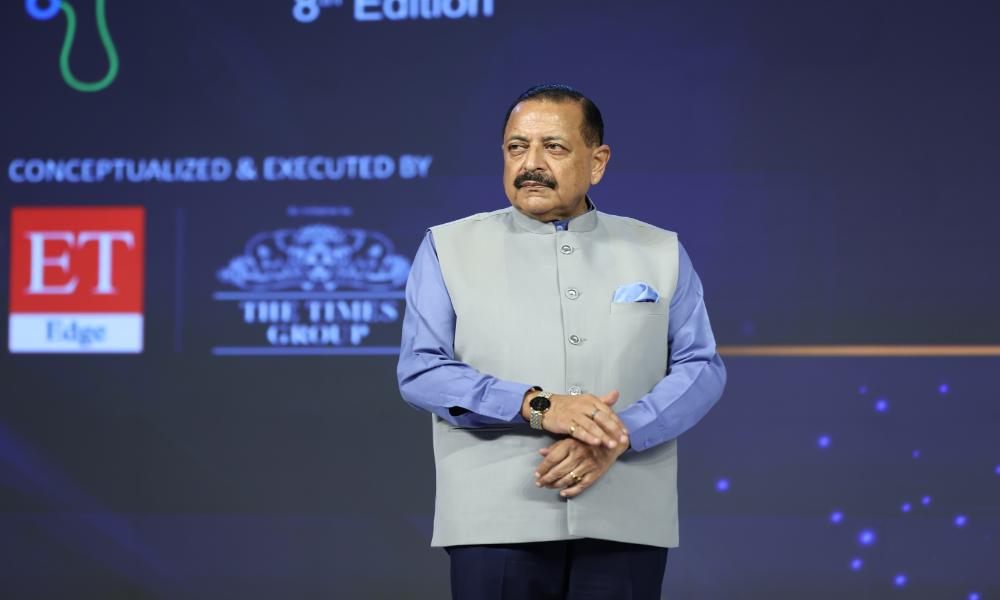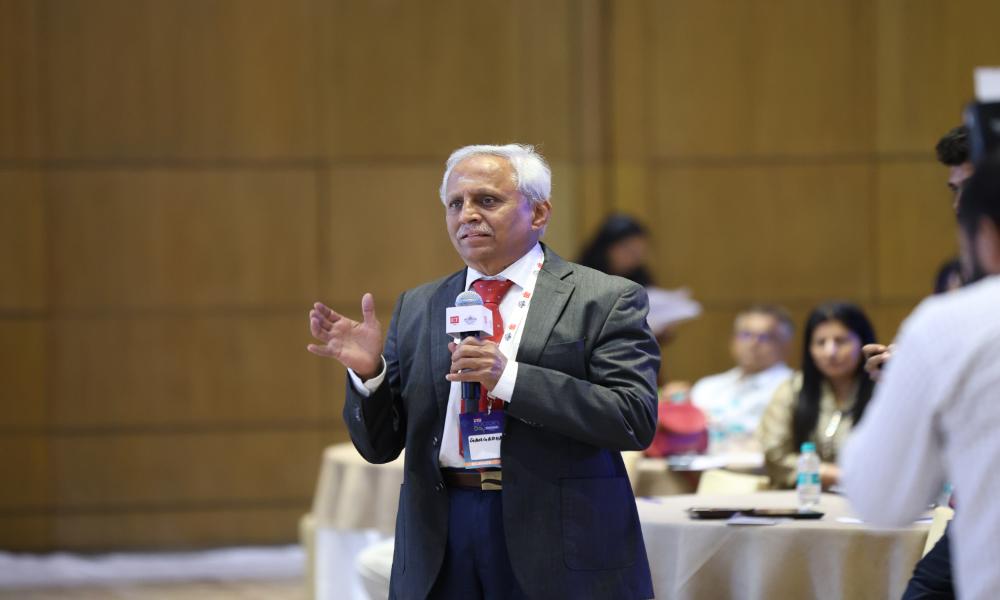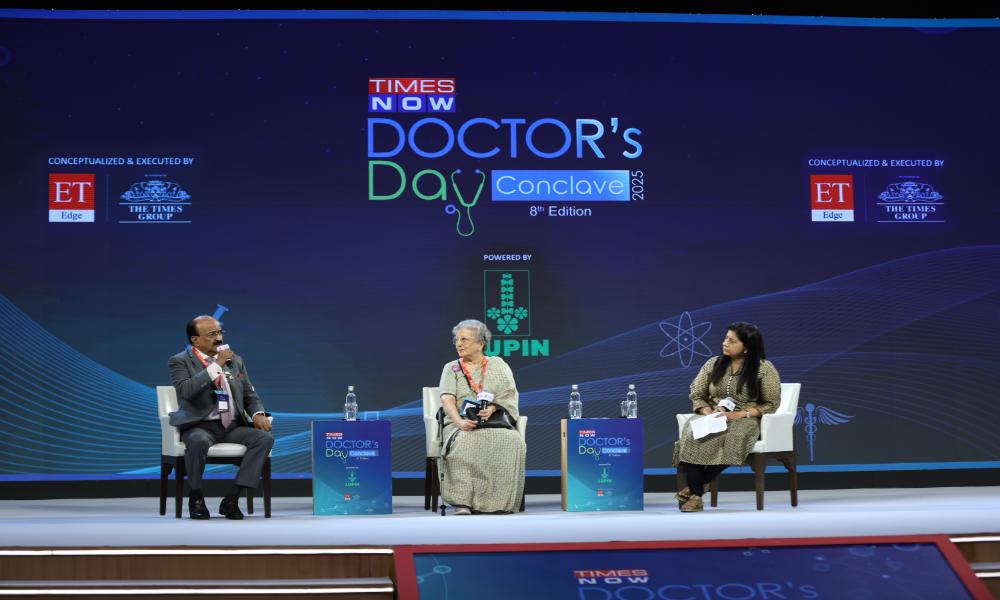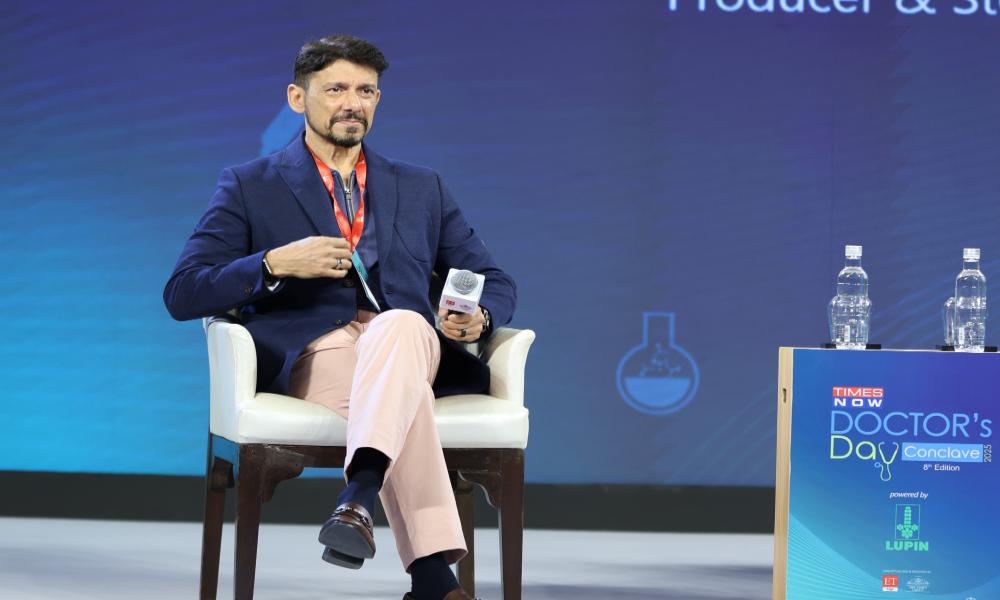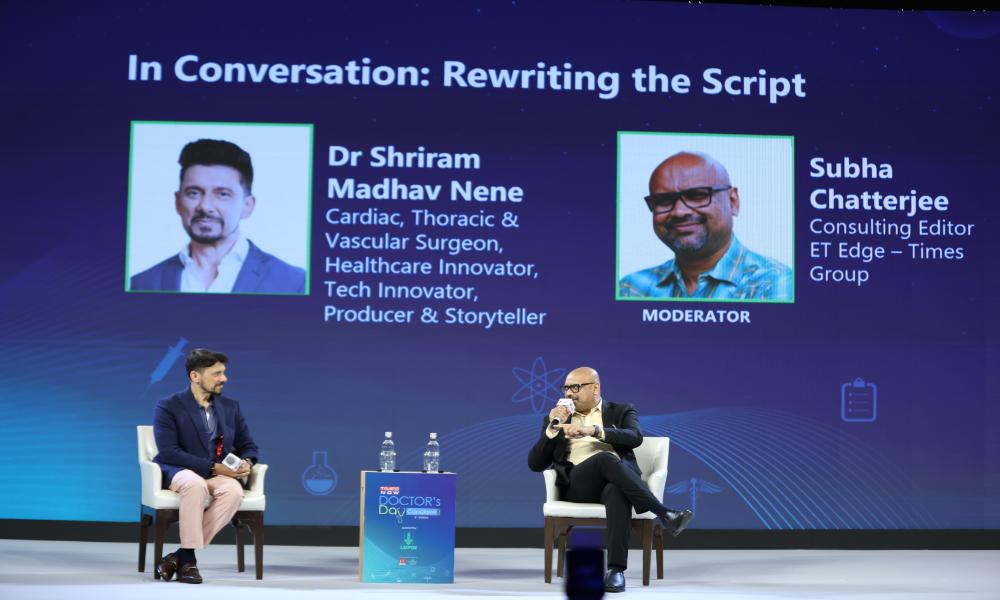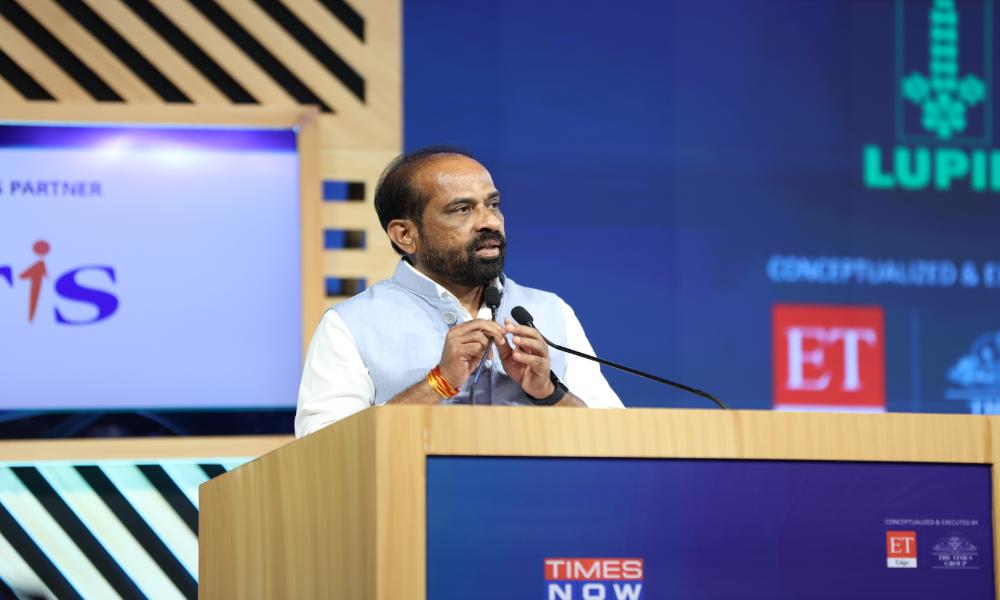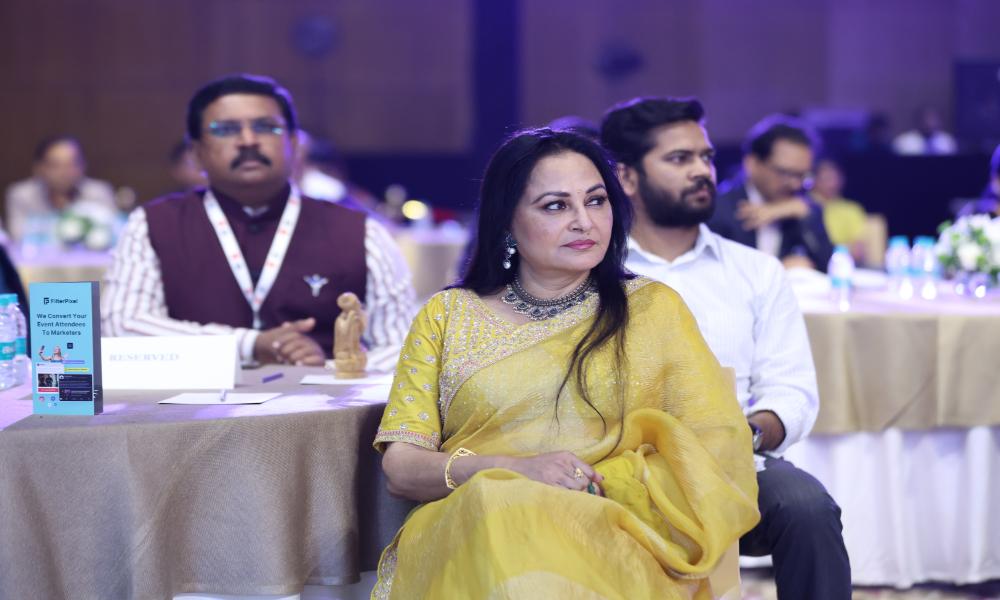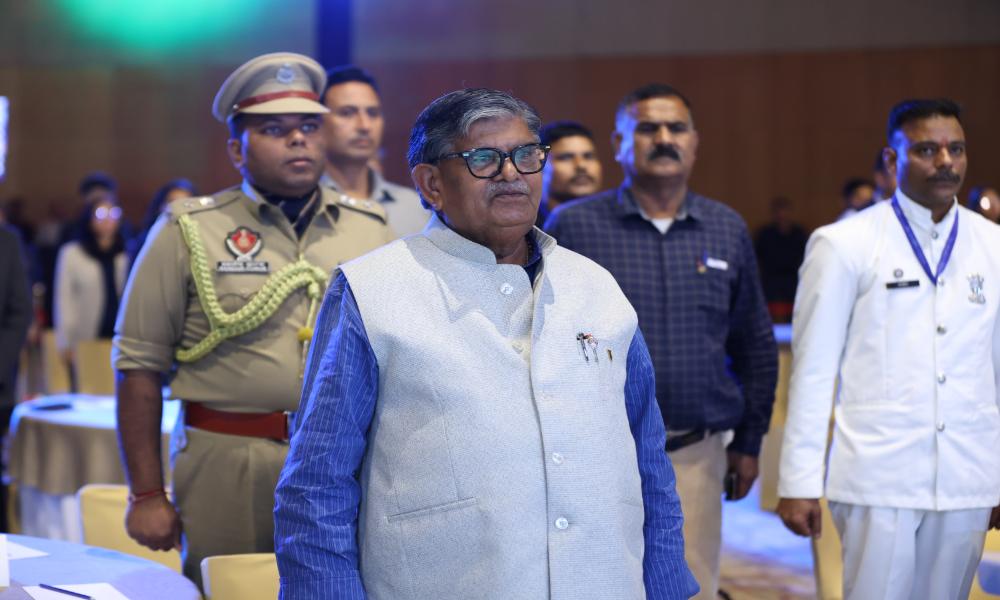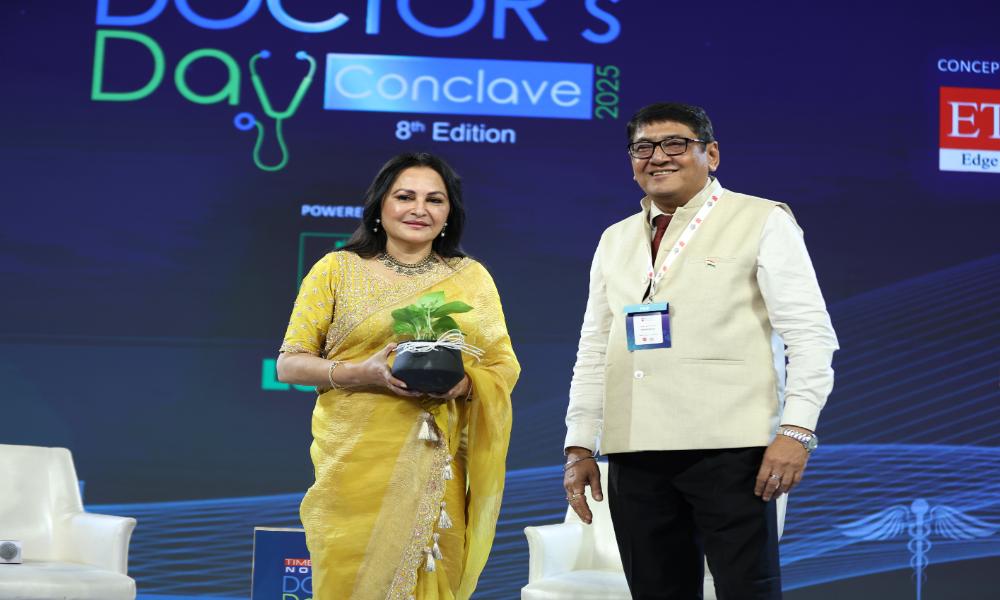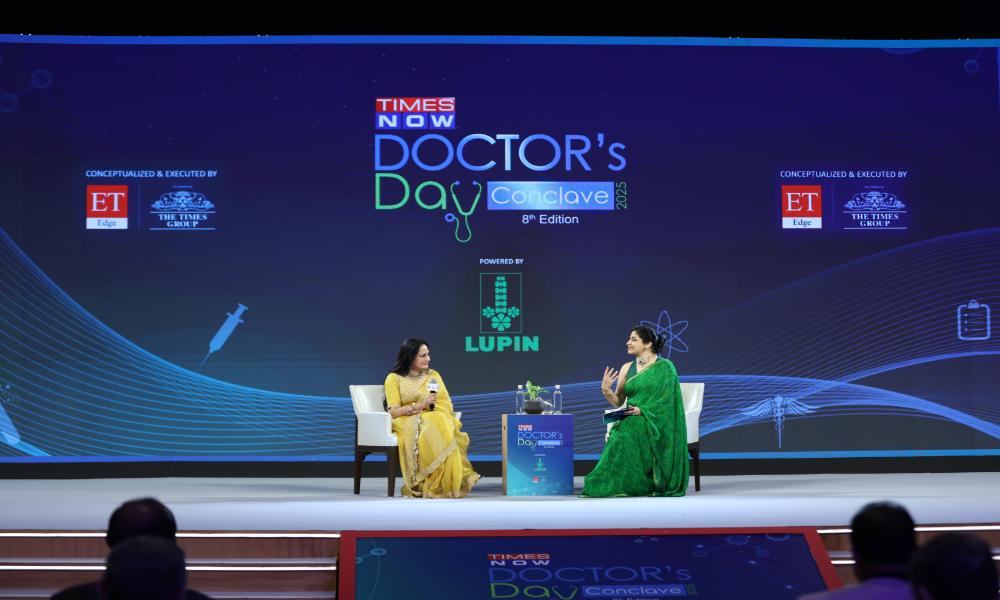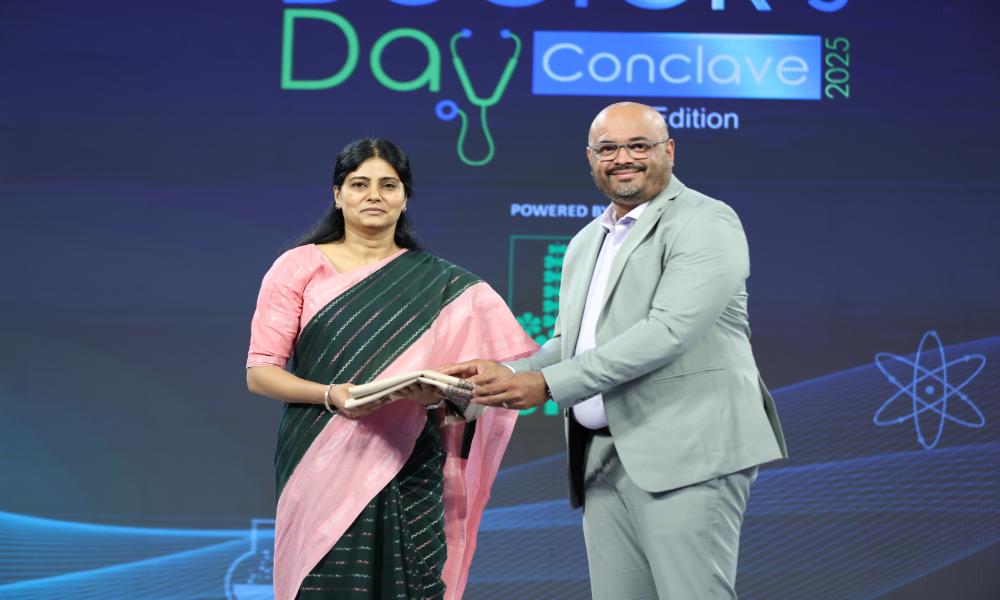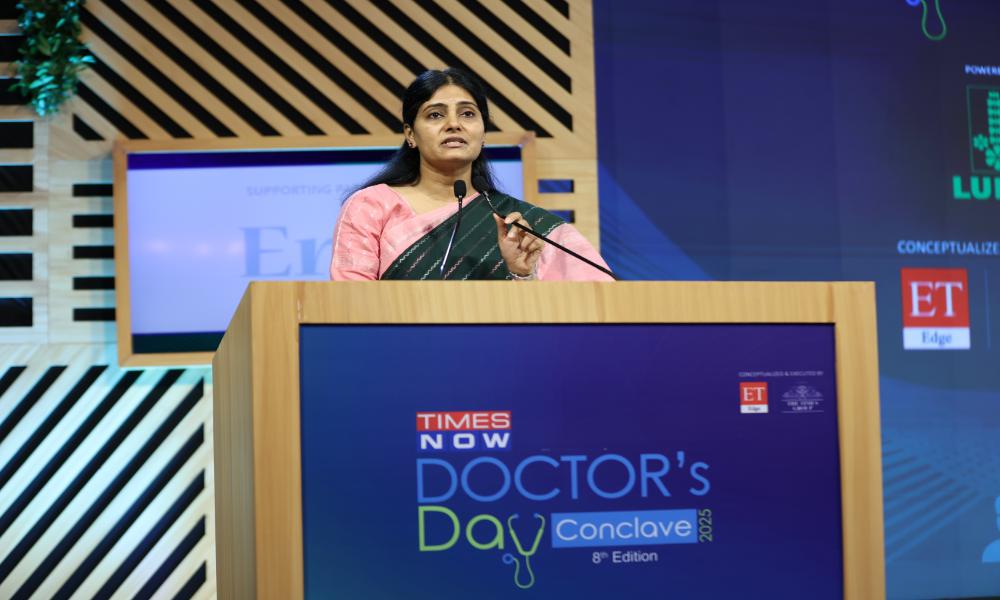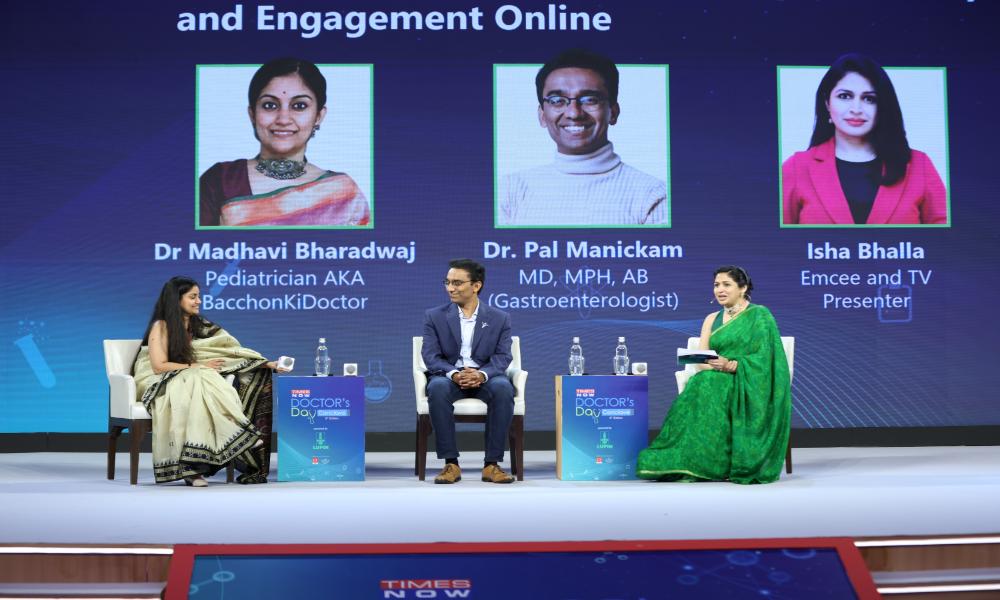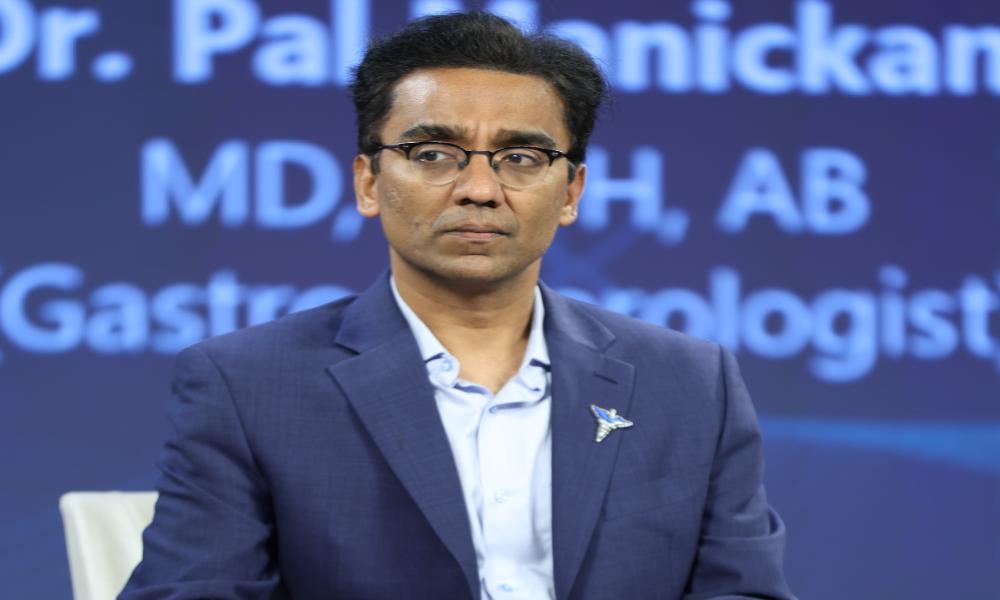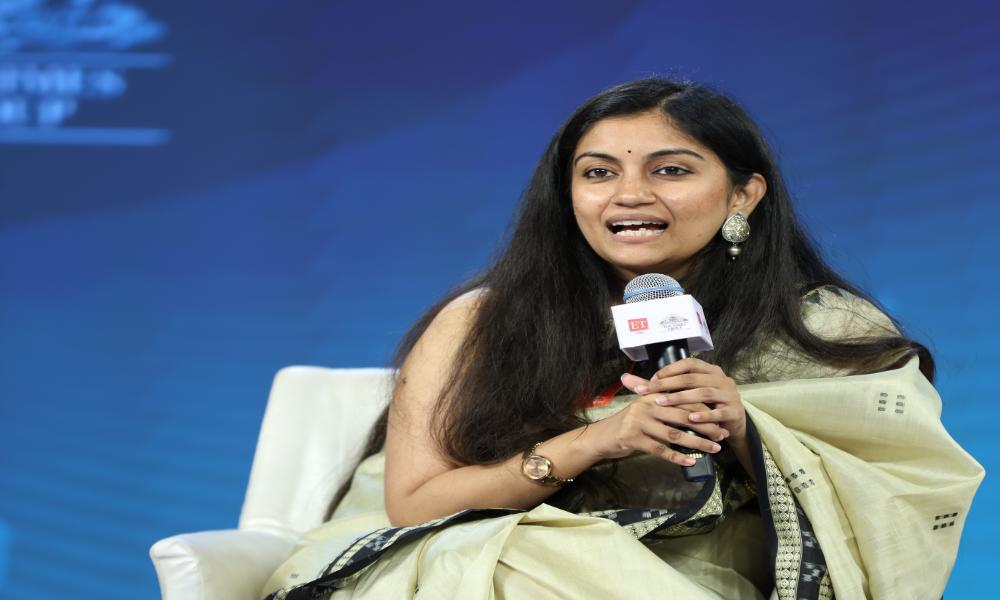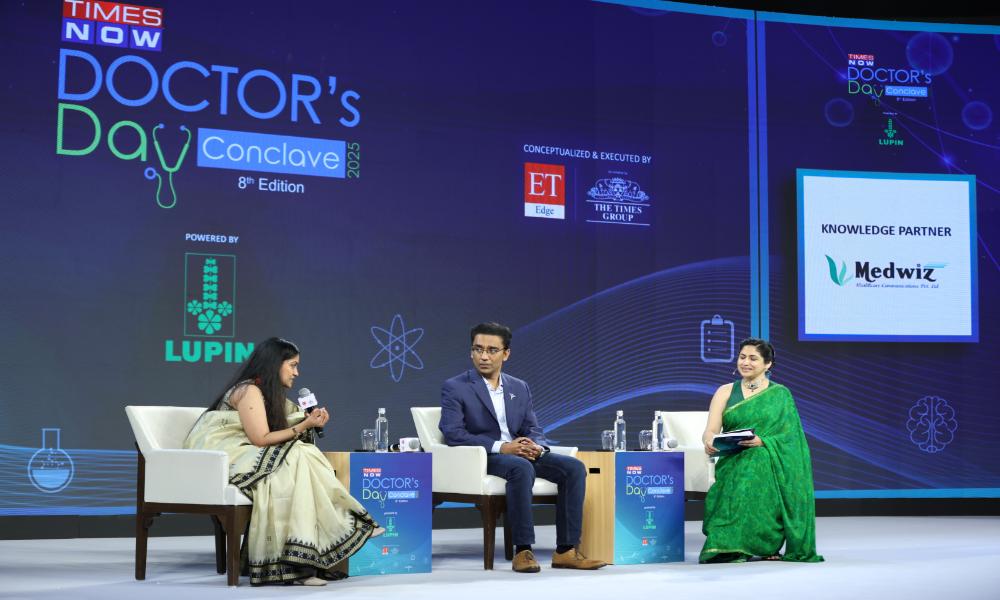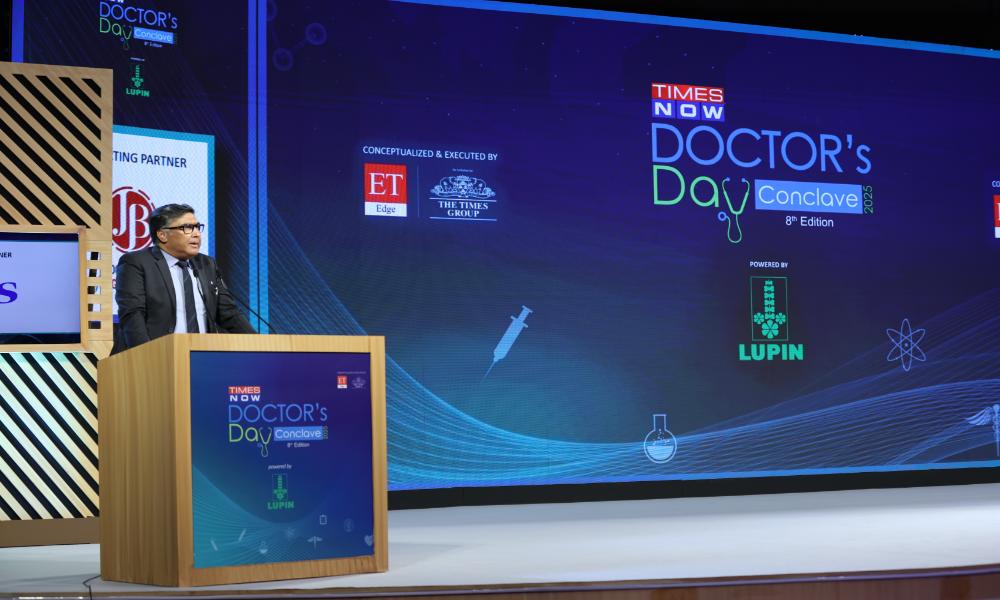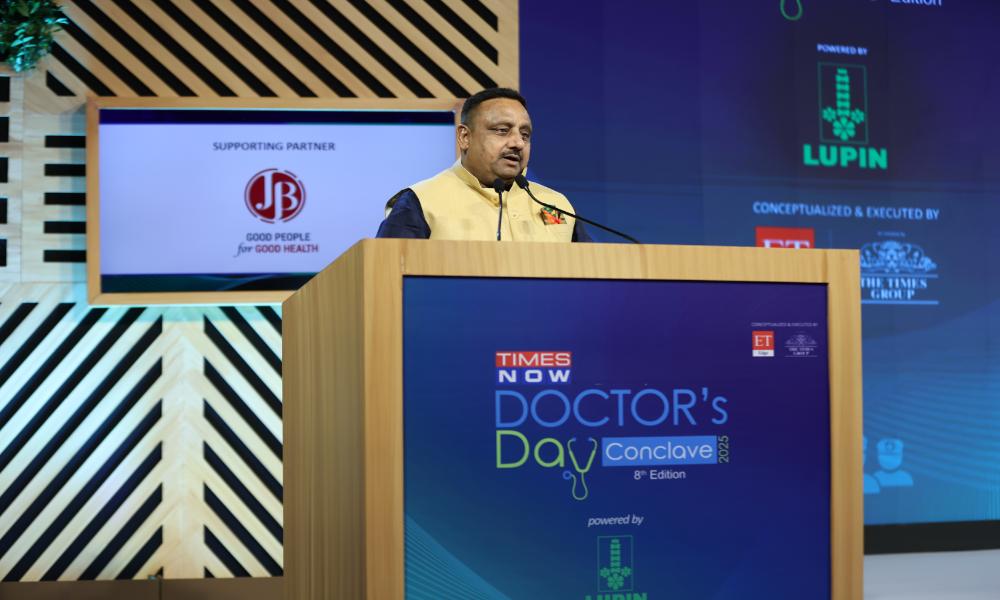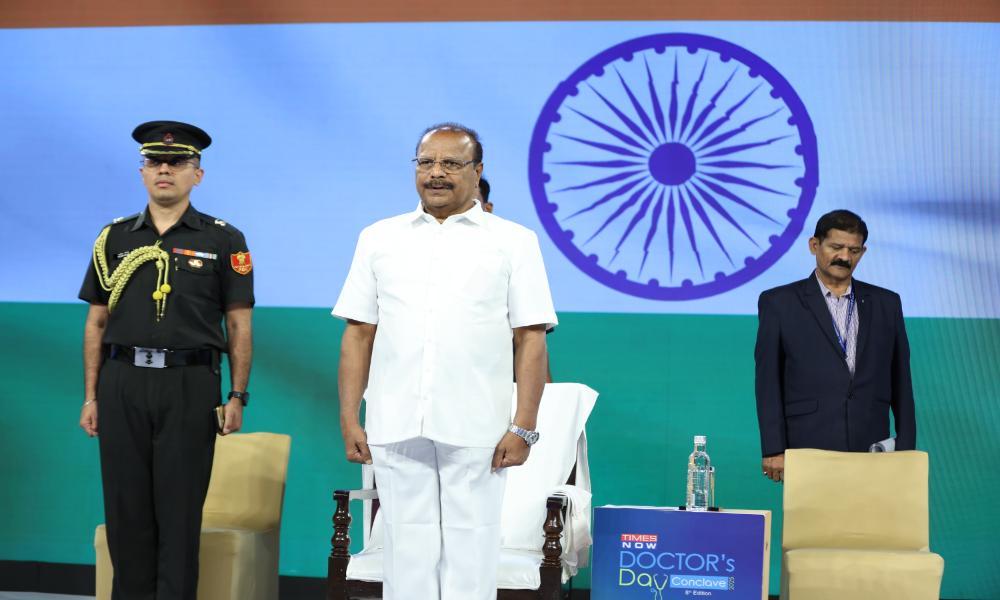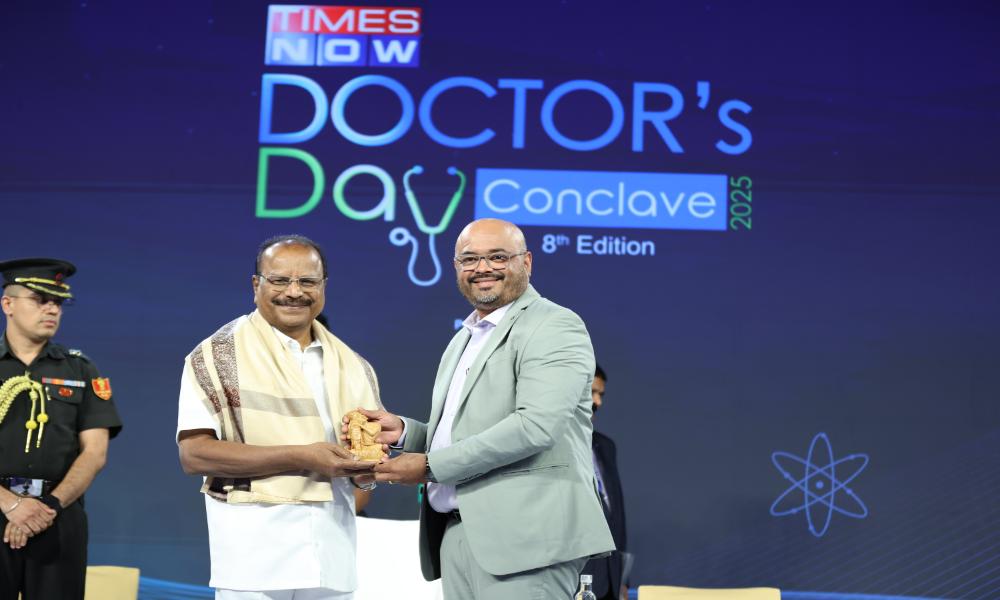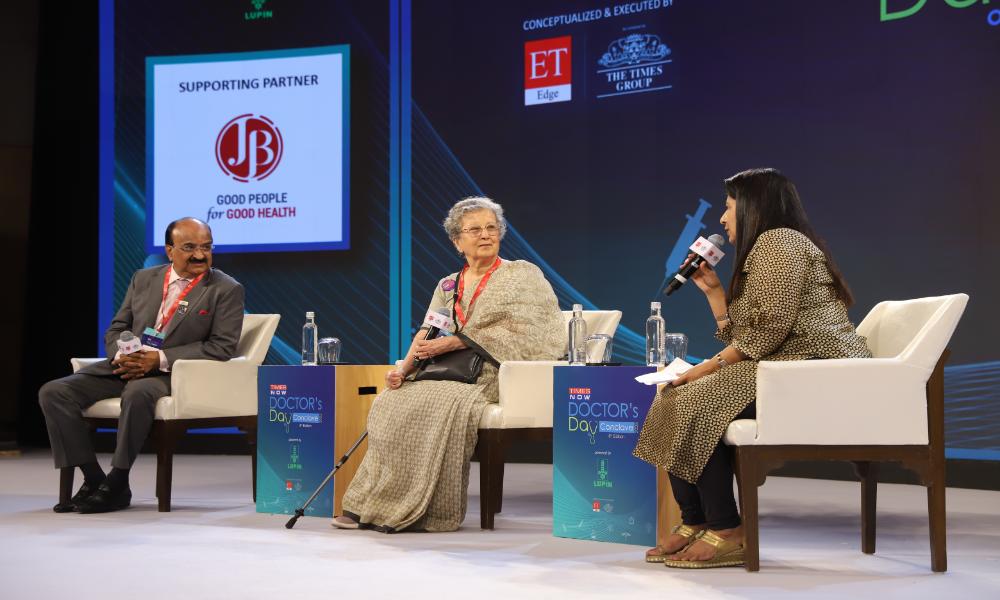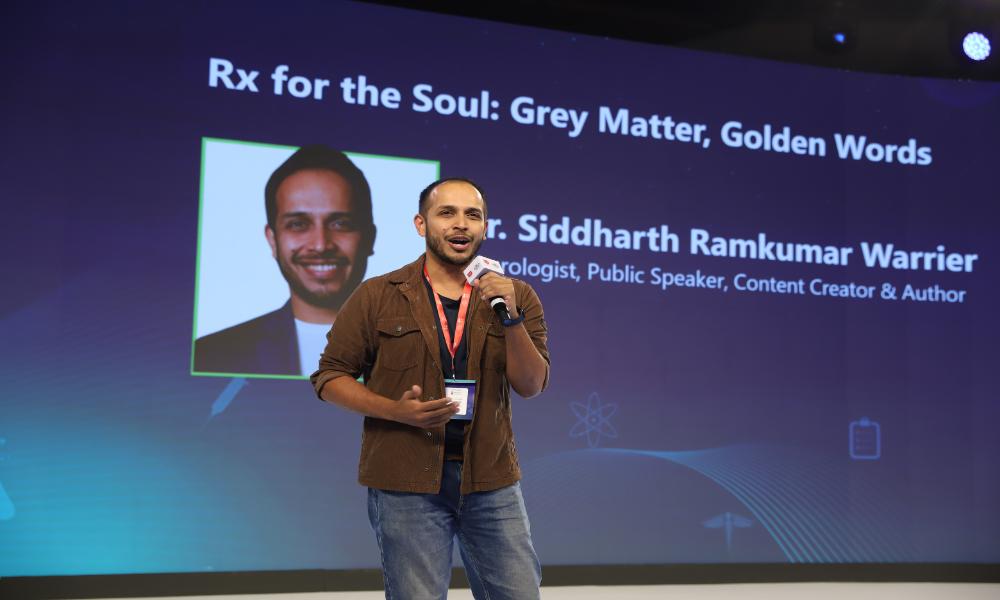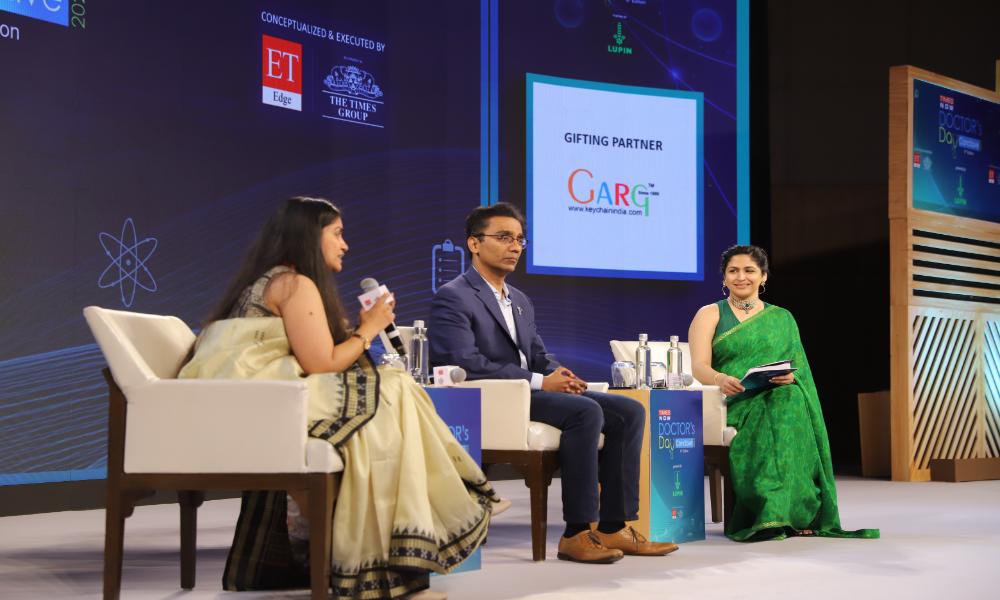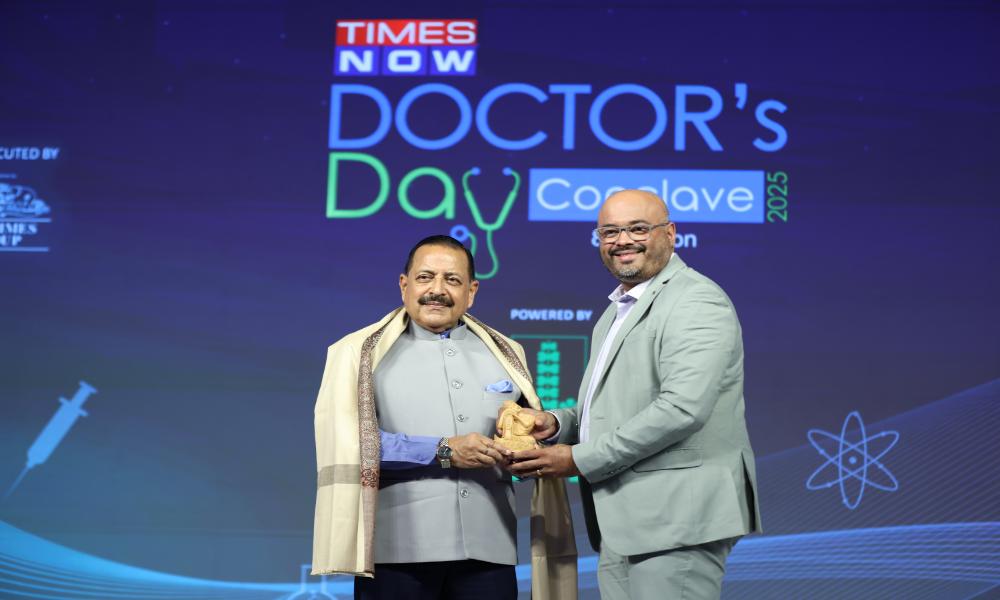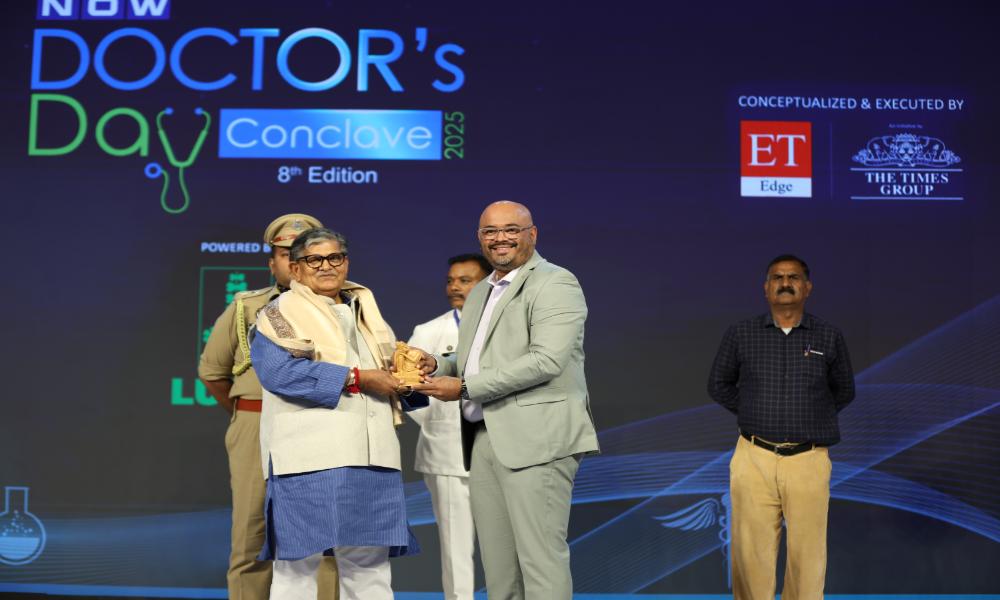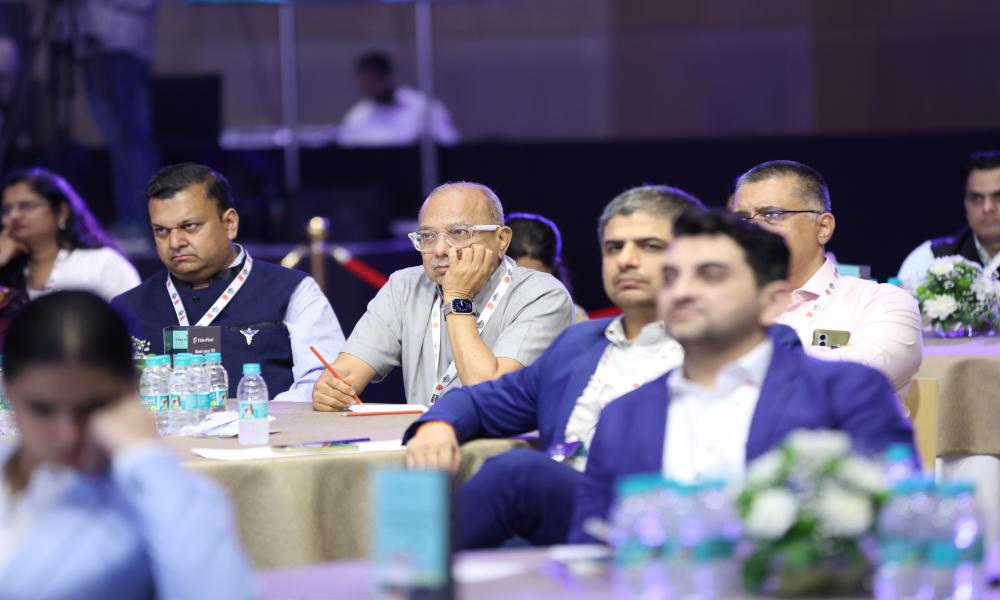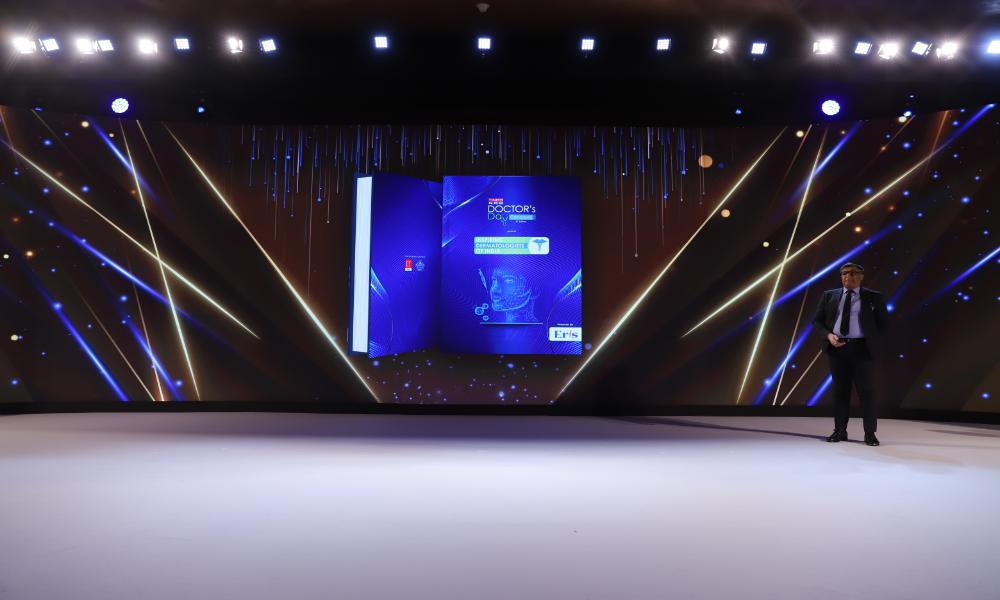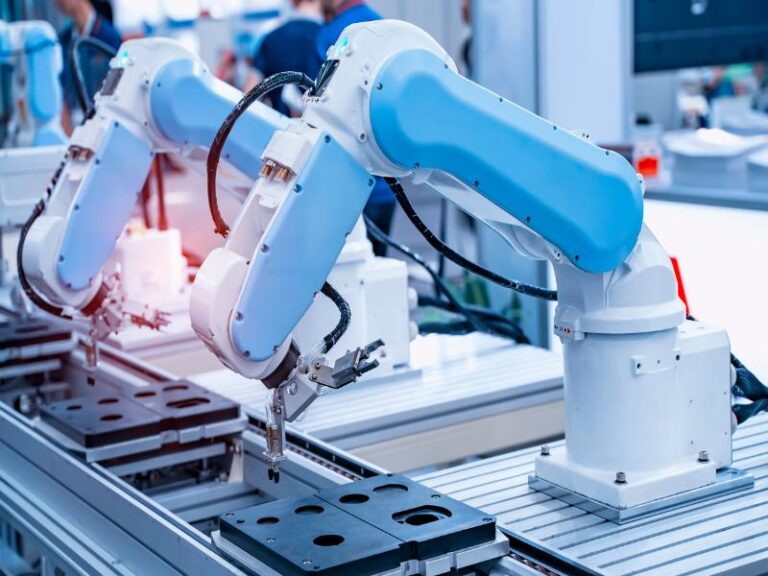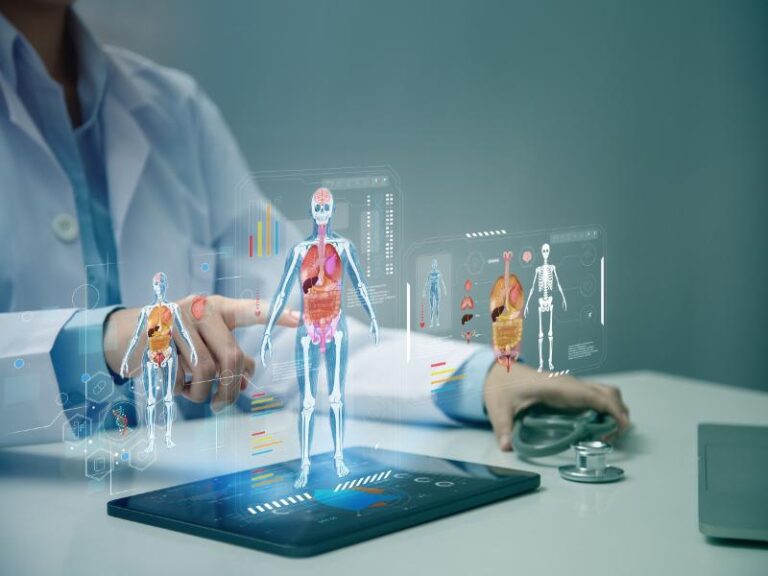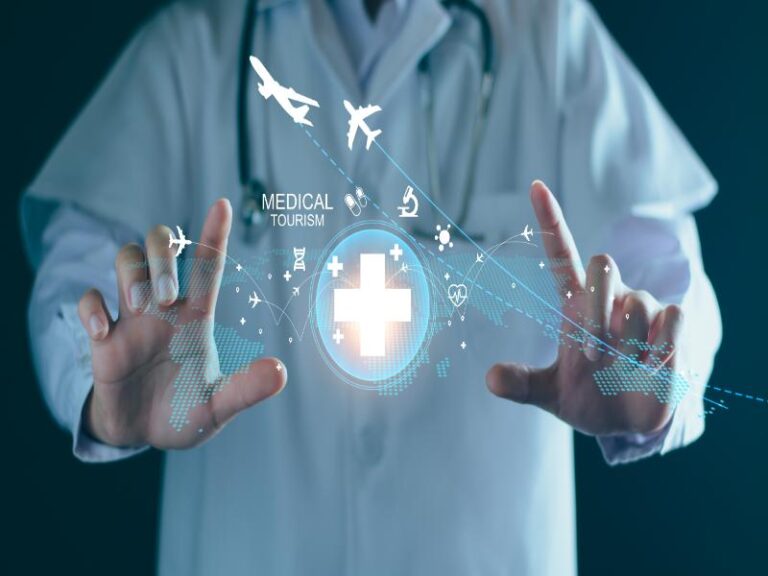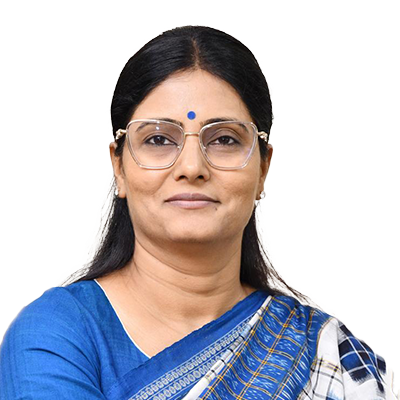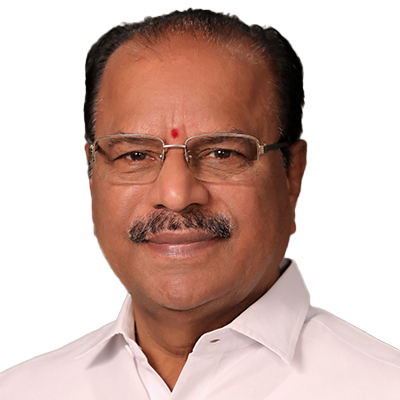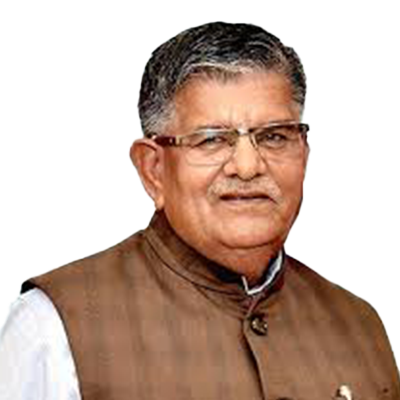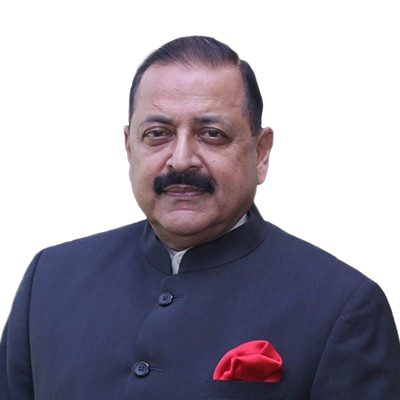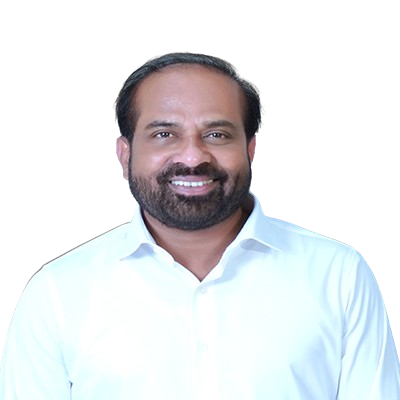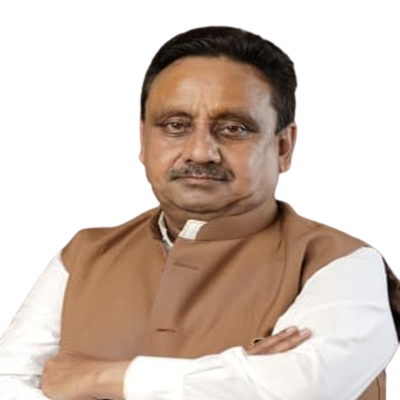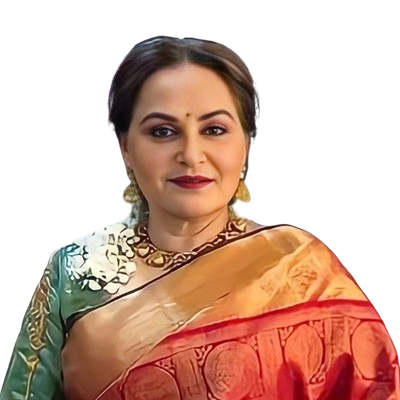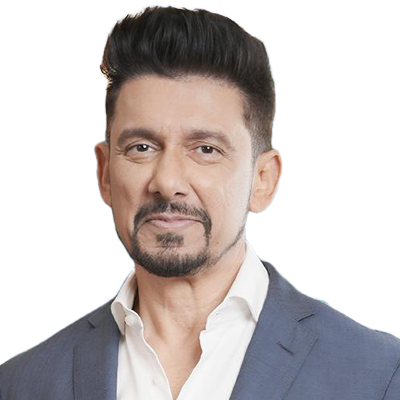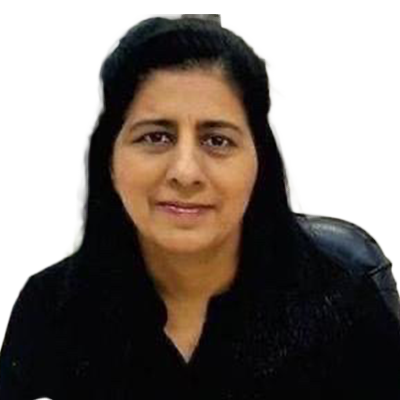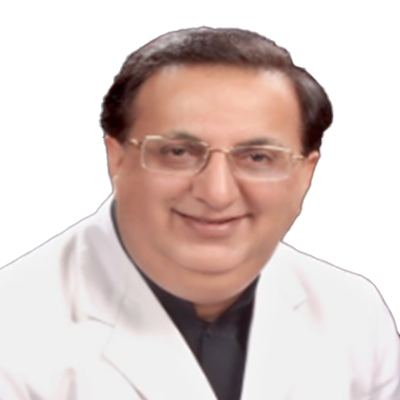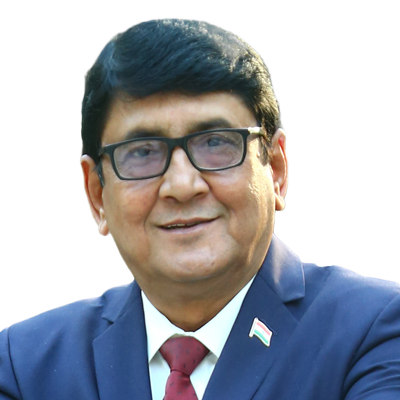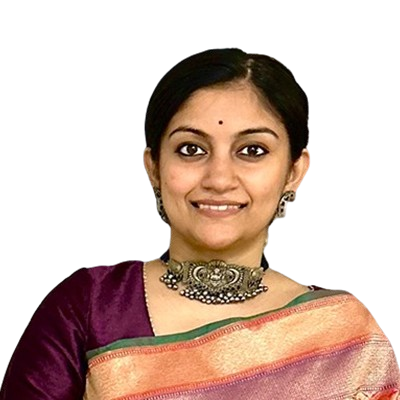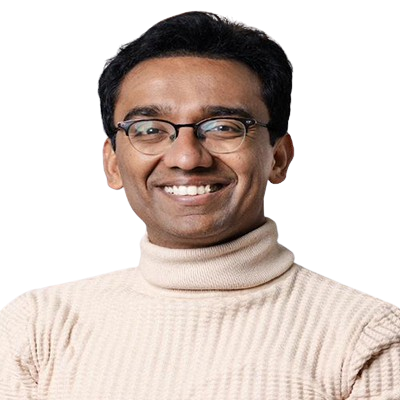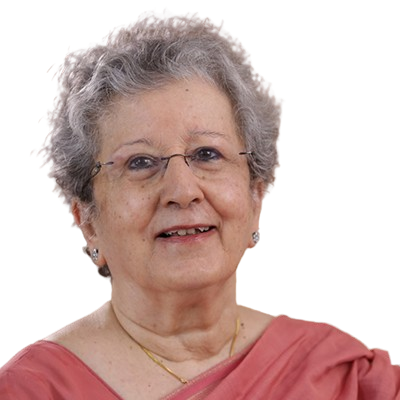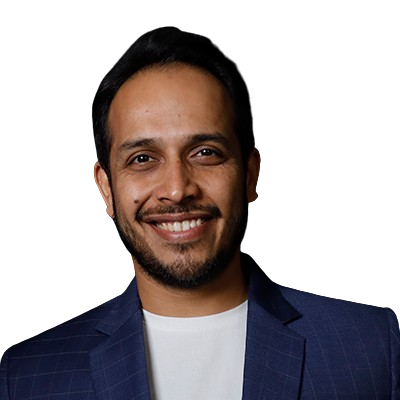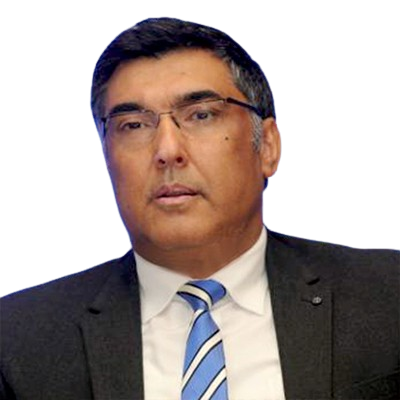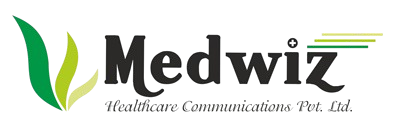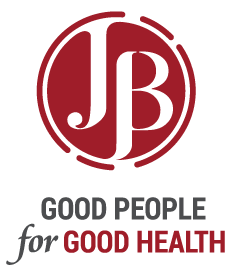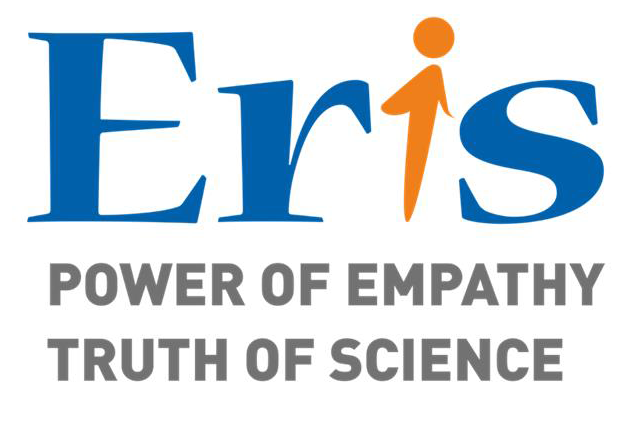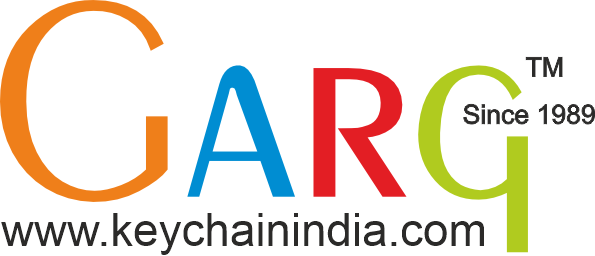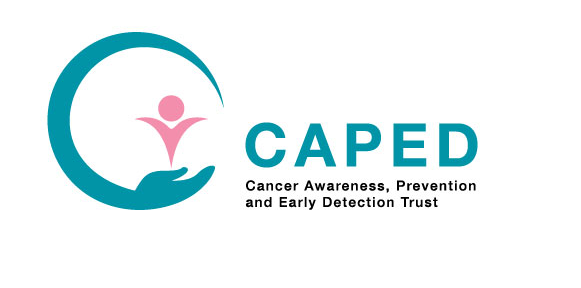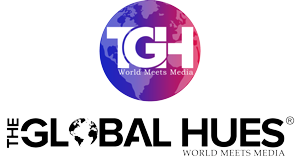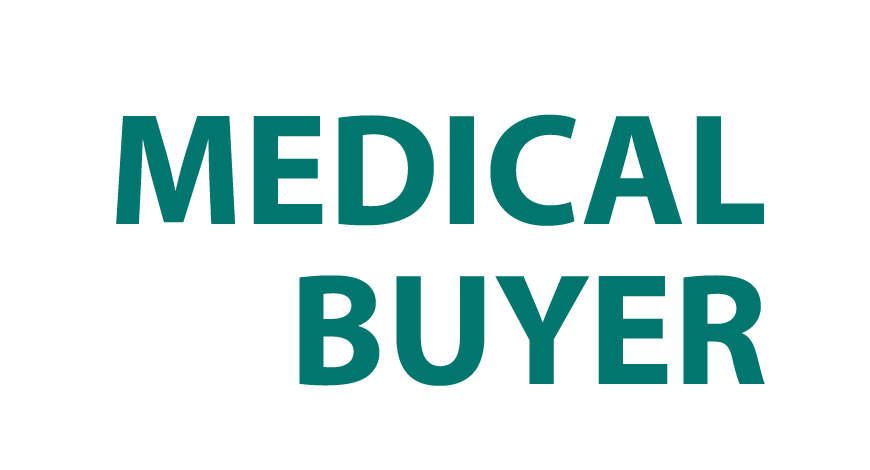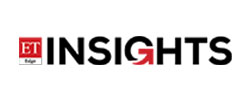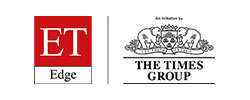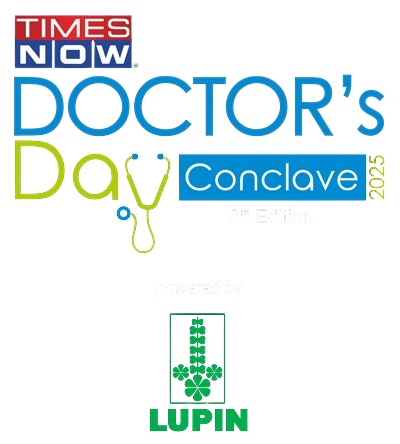
11111
A Life of Care, A Legacy of Light
- Date - 28 th June 2025
- Venue - Andaz, Delhi
Driving Transformation:
India’s Bold
Leap in Healthcare
India’s healthcare sector stands at the cusp of a bold transformation. With a 12.59% surge in the Union Health Ministry’s 2024-25 budget, totaling ₹90,658.63 crore, the nation is making an unprecedented push to expand access, modernize infrastructure, and drive innovation. The digital health segment, powered by initiatives like the National Digital Health Mission (NDHM) and innovations in Artificial Intelligence (AI), Internet of Things (IoT), and wearable technology, is poised for robust growth at a CAGR of 29.5% through 2032.
Strategic policy shifts by the CDSCO, along with expanded initiatives like Ayushman Bharat and tax relief on life-saving drugs, are making healthcare more inclusive, affordable, and globally competitive. These transformative strides are not just reshaping systems—they’re building a resilient, tech-empowered ecosystem poised to lead the future of global health.
India’s Premier Platform for Medical Excellence and Innovation
The Times Now Doctors’ Day Conclave is a prestigious platform celebrating India’s healthcare heroes. Since 2018, it has brought together over 200 leading doctors and 30+ influential policymakers annually, with notable figures like the Late Pranab Mukherjee, Dr. Harsh Vardhan, and Sudha Murthy gracing past editions.
The upcoming 8th edition will spotlight the doctor-patient bond and highlight breakthrough innovations in AI-driven diagnostics and medical technology. Continuing its tradition of excellence, the conclave will also honor top medical professionals across key specialties, reinforcing its legacy as a driving force in Indian healthcare.
Experience the Future of Healthcare Leadership
This initiative is more than an award—it’s a testament to the resilience, dedication, and groundbreaking contributions of India’s healthcare heroes.
Attendee Profile
Renowned Doctors from various domains
Renowned Doctors from various domains
Physicians & Surgeons
Physicians & Surgeons
Leading Hospitals decision makers
Leading Hospitals decision makers
Industry experts & Policy makers
Industry experts & Policy makers
CXO’S from Pharmaceutical companies
CXO’S from Pharmaceutical companies
CXO’S from Insurance companies
CXO’S from Insurance companies
Medical Association Heads
Medical Association Heads
CXO’s from Medical Devices & Diagnostics companies
CXO’s from Medical Devices & Diagnostics companies
CEOs of Laboratories / Pharmacies
CEOs of Laboratories / Pharmacies
Medical students from institutes
Medical students from institutes
Speakers
Chief Guest
Agenda
Shri Gulab Chand Kataria, Hon’ble Governor, Government of Punjab
Shri Gulab Chand Kataria, Hon’ble Governor of Punjab and Administrator UT Chandigarh |
Dr Jitendra Singh, Hon’ble Minister of State (I/C), Ministry of S & T & Ministry of Earth Sciences, MoS in the Prime Minister’s office, Government of India
This address explores how celebrities are using their influence to drive health awareness and social impact. From breaking taboos to championing causes like mental health and preventive care, it highlights the power of public figures in shaping India’s healthcare conversations — both on and off the screen.
Doctors share real-life stories that are absurd, hilarious, or light-hearted—moments that promise guaranteed laughs!
India’s healthcare landscape is evolving rapidly, influenced by shifting public expectations, emerging technologies, and a growing emphasis on patient-centric care. This session brings together influential voices from both policy-making and grassroots advocacy to explore how healthcare leaders can drive systemic change while keeping patient dignity and empowerment at the core.
Speakers:
Dr. Dilip Bhanushali, National President, Indian Medical Association (IMA) |
Jyotsna Govil, Chairperson – Delhi, Indian Cancer Society |
Dr. H.K. Chopra, Chief Cardiologist, Medanta Moolchand Heart Institute, New Delhi |
Moderator:
Dr Mamta Jain, Managing Director, Medwiz Healthcare
Dr Shriram Madhav Nene, Cardiac, Thoracic & Vascular Surgeon, Healthcare Innovator, Tech Innovator, Producer & Storyteller in conversation with Subha Chatterjee, Consulting
Editor, ET Edge – Times Group
India’s healthcare landscape is evolving rapidly, influenced by shifting public expectations, emerging technologies, and a growing emphasis on patient-centric care. This session brings together influential voices from both policy-making and grassroots advocacy to explore how healthcare leaders can drive systemic change while keeping patient dignity and empowerment at the core.
In the high-stakes world of medicine, where science, precision, and protocol reign supreme, creativity often takes a backseat. Yet, within the very grey matter that drives diagnosis and treatment, lies the power to heal through something profoundly human—words. This evocative session explores the intersection of neuroscience and creativity, shining a light on how doctors harness poetry, storytelling.
Dr.Siddharth Ramkumar Warrier, Neurologist, Public Speaker, Content Creator & Author
As India charts its journey toward becoming a developed nation by 2047, healthcare stands as both a pillar and a promise. This session explores the strategic shift from short-term health rollouts to long-term systemic reforms — building resilient, inclusive, and future-ready primary healthcare systems. Anchored in the vision of a $32 trillion economy, the discussion will spotlight how policy, infrastructure, and innovation must align to create a healthier, stronger Bharat.
Sri Satya Kumar Yadav, Hon’ble Minister of Health, Family Welfare and Medical Education,
Government of Andhra Pradesh
A candid dialogue on mental well-being, resilience, and the role of self expression in healing and empowerment.
Smt. Jaya Prada, Actress and former Member of Rajya Sabha
Key Talking Points:
Reimagining patient-centricity beyond urban setups: rural and underserved communities
Designing frictionless, accessible health services using digital infrastructure
The importance of continuity of care—from outreach to recovery
Bridging gaps in education, diagnostics, and treatment pathways
Public-private collaborations for equitable healthcare delivery
Hirak Bose, Senior Vice President, Lupin
India’s healthcare journey is driven by a strong commitment from the government to build a robust and inclusive health system for all its citizens. The foundation of this mission lies not only in the dedicated efforts of healthcare professionals but also in visionary government initiatives that aim to enhance access, quality, and affordability of care across the country.
Smt. Anupriya Singh Patel, Honorable Minister of State for Health and Family Welfare, Government of India
India’s healthcare transformation isn’t possible without its most critical stakeholders—doctors. As the nation steers toward universal health coverage, technology integration, and improved public health outcomes, it is imperative to align policy reforms with the on-ground realities and expectations of the medical community. This session explores how medical professionals can shape and support health reforms, and what policy shifts are needed to empower and protect them in return.
In today’s digital-first world, doctors are not just caregivers—they’re content creators, myth-busters, and public health advocates. This session explores how medical professionals are leveraging their influence online to educate, inspire trust, and build communities.
Speakers:
Dr Madhavi Bharadwaj, Pediatrician AKA BacchonKiDoctor
Dr. Pal Manickam, An American Gastroenterologist
Isha Bhalla, Emcee and TV Presenter
Doctors share which alternative career path they might have pursued if they hadn’t become
doctors, offering a glimpse into their other interests and talents.
Shri Praveen Khandelwal, Member of Parliament (Lok Sabha)
The road to recovery is rarely a smooth or easy one. It’s filled with challenges, setbacks, and moments of uncertainty. Yet, amidst the struggle, there are people who offer hope, comfort, and expertise — the medical professionals who walk alongside us in our journey toward healing. In this powerful session, a renowned public figure will take the stage to share their personal journey of healing.
Dr. Shafqat Khan, Public Health Officer, Government of J&K
Shri Indrasena Reddy Nallu, Hon’ble Governor of Tripura
*Agenda is work in progress and subject to changes.
Partners
Powered By
Knowledge Partner
Supporting Partners
In Association With
Supporting Association
Media Partners
Glimpses
